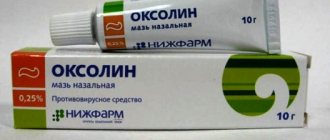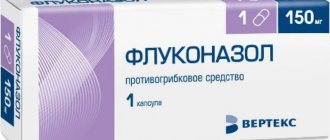According to statistics, over 40 percent of people constantly experience increased blood pressure. Many of them don't even know about it. This condition is called hypertension or hypertension. In many cases, it becomes the cause of the development of various pathological conditions.
It has been proven that normalizing blood pressure (BP) reduces the risk of stroke by 80 percent and the risk of heart attack by 50 percent. In addition, life expectancy increases and its quality improves.
Treatment of arterial hypertension is determined by a specialist. For this, a number of drugs are used, including Lisinopril Astrapharm. It is produced in Ukraine, has an affordable price and high efficiency. In addition to the treatment of hypertension, the drug is used in some other cases. To achieve results, use must be based on compliance with recommendations and instructions.
What is Lisinopril Astrapharm used for?
The drug is used for a wide range of diseases. In particular, Lisinopril Astrapharm tablets, according to the instructions, are effective in the following cases:
- Arterial hypertension. The drug is taken on a regular basis. This allows you to normalize blood pressure and prevent possible consequences.
- Chronic heart failure. It is a disease characterized by disruption of the heart muscle. It develops as a result of pathologies of myocardial tissue and incorrect emptying/filling of the heart with blood. The disease is characterized by periods of exacerbation (decompensation) and a gradual increase in symptoms.
- Acute myocardial infarction. It is a form of coronary heart disease. Occurs due to necrosis of cardiac tissue, due to impaired blood supply to the organ. Has a high mortality rate.
- Diabetic nephropathy. Occurs in every third patient suffering from diabetes. It is expressed in damage to the blood vessels of the kidneys, their tubules and glomeruli. Leads to peripheral edema and increased blood pressure.
- Kidney failure. This is a pathology expressed in impaired renal function. There are acute and chronic forms of the disease.
Lisinopril Astrapharm, the use and dosage of which depends on the diagnosis, is used as part of mono- or complex therapy.
Symptoms of chronic heart failure
Drug interactions
This remedy is often used in complex therapy of various diseases. In this case, it is necessary to know the interaction of concurrently prescribed drugs:
- Concomitant use with other antihypertensive drugs is not recommended;
- provokes a decrease in blood pressure together with estrogen, narcotic analgesics, thrombolytics, sedatives;
- when used with potassium-sparing diuretics (Spironolactone, Triamterene, Amiloride), the risk of developing hyperkalemia increases;
- hyperglycemia is also caused by combined use with Insulin or Lovastatin;
- the use of ACE inhibitors and NSAIDs increases the risk of kidney dysfunction;
- reduce the effect of the drug Indomethacin and Pergolide;
- the reaction of the antipsychotic Clozapine increases (its content in plasma increases);
- the effect of products containing ethanol is enhanced;
- joint use with lithium-based drugs is dangerous due to violations of its excretion from the body;
- anti-inflammatory drugs, estrogens and acetylsalicylic acid reduce the effectiveness of tablets;
- loop and thiazide diuretics increase the risk of renal dysfunction;
- combination with Allopurinol and Procainamide is dangerous due to leukopenia;
- Concomitant use with dietary supplements and salt substitutes containing potassium is not recommended.
Combining the drug with Allopurinol is dangerous due to leukopenia.
How does it work?
The active substance in the composition according to the instructions for use is lisinopril dihydrate. It is its presence that determines the effect of the drug. In particular, he provides:
- hypotensive effect (lowers blood pressure);
- cardioprotective effects (promotes the protection of cardiomyocytes - cardiac muscle cells);
- vasodilating effect (Lisinopril Astrapharm effectively dilates blood vessels, which helps improve blood supply);
- natriuretic effect (promotes the removal of fluid and sodium from the kidneys, which helps reduce swelling and lower blood pressure).
Lisinopril Astrapharm begins to act in approximately 30–60 minutes. The maximum concentration in the patient's blood is detected 6 hours after administration.
The active substance slows down the process of synthesis of the hormone angiotensin, leading to a narrowing of the lumen of blood vessels. This leads to a decrease in the level of aldosterone, a hormone responsible for increasing blood pressure and increasing circulating blood volume. As a result, blood pressure is normalized, and minute blood volume increases without increasing heart rate.
With long-term use, according to the recommendations from the instructions for use, it is possible to achieve a lasting effect. In particular, an improvement in blood supply to heart tissue is recorded, and in some cases it is possible to reverse a number of pathological processes. In case of chronic heart failure, taking the drug can prolong the patient’s life. The drug also reduces the likelihood of an exacerbation.
Lisinopril Astrapharm, the instructions for use of which advise using the drug for 1–2 months to achieve a lasting effect, practically does not undergo biological transformation. The half-life of the drug from the body takes 12 hours.
Composition and mechanism of action
The active ingredient in Lisinopril tablets is lisinopril dihydrate (lisinopril, in Latin). It is included in the dicarboxylate-containing category of ACE inhibitors. The tablets also contain: corn starch, Ca hydrogen phosphate, Mg stearate, Si dioxide, E-421 (mannitol).
Tablets are available in 3 standard dosages for ACE inhibitors - 5, 10 and 20 mg
These blood pressure pills, without changing the heart rate, increase cardiac output and blood flow in the kidneys, while significantly and effectively reducing peripheral resistance. Lisinopril helps both patients with an imbalance of the renin\angiotensin\aldosterone system, and those with reduced renin synthesis.
For your information. Doctors especially value this ACE inhibitor because it can be prescribed to diabetics. Lisinopril does not cause fluctuations in blood glucose, does not provoke attacks of hyperglycemia, and even helps reduce renal albuminuria.
Instructions for use
The medicine goes on sale in small cardboard packages. Each contains a paper insert with a detailed description of Lisinopril Astrapharm itself, what it helps with, dosage and contraindications. In addition, the instructions for use contain information about the composition and expiration dates. Before taking Lisinopril Astrapharm, you should definitely read the information provided.
Dosage
Lisinopril Astrapharm, the instructions for which contain detailed information on the dosage of the drug, is available in tablet form. They are beveled biconvex circles of white or almost white color. Each tablet has a notch (mark) on one side.
Depending on the content of the active substance in the composition, the following are distinguished:
- Lisinopril Astrapharm 20 tablets, 5 mg;
- 20 tablets of 10 mg;
- Lisinopril Astrapharm 30 tablets, 10 mg;
- 20 tablets of 20 mg.
Based on specific data, the specialist determines the dosage of Lisinopril Astrapharm (what is it prescribed for, what age is the patient, are there any restrictions on use).
Reception scheme
The intake of Lisinopril Astrapharm is regulated by the instructions and is selected individually. Depending on the diagnosis, the dosage regimen also changes.
| Indications according to instructions | Dosage | Course duration |
| Arterial hypertension | ||
| - initial dosage - for cardiac decompensation, dehydration, renovascular hypertension, severe cases of arterial hypertension - for maintenance therapy - together with diuretics - for renal failure | 10 mg per day 2-5 mg per day (strictly under medical supervision) 20 mg per day According to the instructions, if there is no effect after 14-28 days of use, the dose can be increased, but not more than 80 mg per day From 5 mg per day According to the instructions, diuretics must be stopped 72 hours before use. Based on creatinine clearance: - less than 10 ml/min - from 2.5 mg; - 10-30 ml/min - 2.5-5 mg; - 31-81 ml/min - 5-10 mg. The dose should not exceed 40 mg per day. | Determined by a specialist. Determined by a specialist. From 2 weeks. Determined by a specialist. Depending on the blood pressure. |
| Chronic heart failure | ||
| Used as part of complex therapy as a supplement. | From 2.5 to 35 mg per day According to the instructions, the dosage must be increased gradually. No more than 10 mg in 14 days. | Individually. |
| Acute myocardial infarction | ||
| Used as part of combination therapy. - initial dose — supporting course | 2.5 mg per day 2.5-10 mg per day | In the first 72 hours after a heart attack. From 42 days. |
| Diabetic nephropathy | ||
| - for the treatment of hypertension - for renal failure | 10-20 mg per day Based on creatinine clearance: - less than 10 ml/min - from 2.5 mg; - 10-30 ml/min - 2.5-5 mg; - 31-81 ml/min - 5-10 mg. | Individually. Individually. |
Lisinopril Astrapharm, the instructions for which advise caution in prescribing the drug to older people, is prescribed to the elderly based on blood pressure.
Contraindications
According to the instructions for use, the tablets are prohibited from being taken in a number of cases. Among them:
- Individual intolerance to the components of the drug. Severe allergic reactions, dermatitis, peeling, redness and itching are reasons to stop taking the drug immediately.
- History of Quincke's edema. It is a special form of peripheral reaction to various substances of biological or chemical origin. Manifests itself in the form of angioedema (affects the face completely/partially, arms, legs).
- Mitral-aortic stenosis. Stenosis is a narrowing of the lumen of the cavity that is stable. In this case, it affects the left ventricle and aorta of the heart muscle.
- Bilaterally symmetrical renal artery stenosis.
- Hypertrophic cardiomyopathy. Heart pathology caused by excessive development of the walls of one or both ventricles.
- Acute myocardial infarction, accompanied by disturbances in the movement of blood through the vessels.
- Extreme degree of left ventricular failure (cardiogenic shock).
- Use together with polyacrylonitrile sodium-2 methylalyl sulfonate.
- The creatinine concentration in the patient’s blood is over 210–220 µmol/l.
- Pregnancy or planning to conceive.
- Lactation.
Side effects
Lisinopril Astrapharm has a list of possible side effects, which are described in detail in the instructions for the drug.
| System | Side effect according to instructions |
| Hematopoietic/lymphatic systems | Decreased hemoglobin concentration in the blood, reduction in hematocrit level, inhibitory effect on bone marrow activity, anemia, leukopenia, the occurrence of autoimmune processes and pathologies. |
| Metabolism | Decreased blood sugar levels (hypoglycemia). |
| central nervous system | The occurrence of headache, dizziness, drowsiness, mood swings, excessive emotionality, fast, insomnia, loss of consciousness, loss of appetite. |
| The cardiovascular system | Increased blood pressure, rapid heartbeat, myocardial infarction. |
| Musculoskeletal system | Spasms of various muscle groups |
| Respiratory system | Choking cough, Quincke's edema, rhinitis, bronchospasm, glossitis. |
| Digestive system | Diarrhea, nausea, pancreatitis, drug-induced hepatitis, swelling, constipation, liver failure. |
| Skin | Dryness, peeling, redness, itching, urticaria, eczema, dermatitis, vasculitis, psoriasis. |
| Urinary system. | Renal dysfunction, renal failure. |
| Endocrine system | Violation of the synthesis of antidiuretic hormone. |
| Reproductive system | Impaired potency, gynecomastia. |
| General state. | Fatigue, decreased activity, weakness. |
Reviews about the use of Lisinopril Astropharm
There are many reviews on the Internet about taking the drug. Most of them contain positive impressions. The drug actually successfully copes with its task: it effectively reduces blood pressure and has a long-lasting effect.
However, the drug cannot always be bought at a pharmacy, and it is more expensive than some similar drugs. Some patients note that Lisinopril Astropharm puts additional stress on the kidneys and causes side effects.
You should not waste time reading information about Lisinopril Astrapharm, what these pills are for and how they work, if their use has not been agreed with your doctor.
Analogs
Medicines produced on the basis of the same active ingredient, with the inclusion of a diuretic (mannitol), are analogues and have the following prefixes in their names:
- Astrafam;
- Ratiopharm;
- Teva;
- Stada.
Other trade names of drug analogues:
- Aurolaise;
- Vitopril;
- Dapril;
- Diroton;
- Zonixem;
- Lizoril;
- Lipryl;
- Lizinocol;
- Lisinovel;
- Lisi-Sandoz;
- Rileys-Sanovel;
- Sinopril;
- Copril.
[morkovin_vg video=”rqJGo2DMIKw;JTVZdsfyPxU”]












